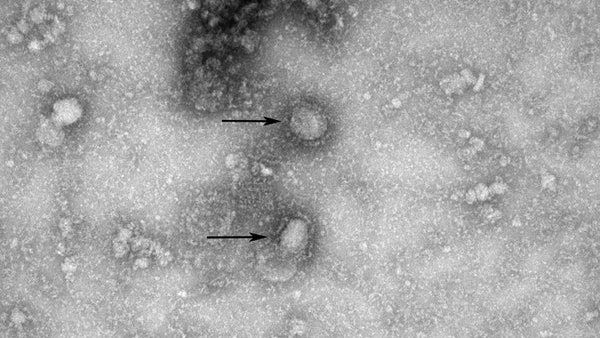Social News
Written by: Chen Qianting
2020-05-08 06:30
Last update date: 2020-05-08 06:30The latest study by the research team of the School of Public Health of the University of Hong Kong used human respiratory tract and conjunctival tissues cultivated in the laboratory to compare the infection levels of the new coronavirus and several other viruses. The results showed that the infection level of the new coronavirus was similar to that of the 2009 swine flu pandemic. The new coronavirus was also more susceptible to human respiratory tract and conjunctiva than SARS.
The team believes that the study explains the new type of pneumonia is more contagious than SARS, and reflects that the eye may be one of the important ways of contracting new pneumonia, reminding the public to avoid touching the eyes with their hands in order to prevent the virus from spreading by hand. The research article has been published in the well-known medical journal "Needle Respiratory Medicine".
The members of the research team of the HKU School of Medicine include: (from left to right) Professor Tan Huazheng Fund Professorship (Medical Sciences) and Chair Professor of Virology, Professor Pei Weishi, Clinical Professor of Pathology, Professor Li Guosi, Associate Professor of the School of Public Health, Dr. Zhiwei Chen, and Dr. Xu Yiyin, Assistant Professor (Research), School of Public Health. (Pictures of School of Public Health, HKU Medical College)
The research team of the School of Public Health of the Hong Kong University School of Medicine used the human respiratory and eye tissues cultivated in the laboratory to compare the new coronavirus, SARS virus, H5N1 avian influenza virus, H1N1 virus of the 2009 swine flu pandemic, and the Middle East respiratory Syndrome MERS virus, a total of five virus infections.
New coronavirus infectivity is similar to swine flu
The results of the study show that the new coronavirus is similar to swine influenza, and compared with the 2003 SARS virus, the new coronavirus is more likely to infect the human conjunctiva and upper respiratory tract than SARS. The team believes that the research helps explain why the new type of pneumonia is more contagious than SARS. Dr. Zhiwei Chen, an associate professor at the School of Public Health, pointed out that the results show that the eye may be an important way for humans to contract new pneumonia.
An earlier study by the School of Public Health showed that the new coronavirus can survive for a longer time in stainless steel, glass, etc. This study further shows that if the hand touches a contaminated surface and then wipe the eyes, the virus may be in contact propagation. The results of the study mean that the public should avoid contact with eyes in public places, and the public should also wash their hands regularly with soap, water or alcohol hand rubbing liquid to prevent accidental spread of the new coronavirus to the eyes and nose.
The research results have been published in the well-known medical journal "Needling Respiratory Medicine".
In severe cases of new pneumonia, treatment with plasma for 3 days, viral volume plummets, plasma can be stored until winter
[New pneumonia] Liang Zhuowei: Study reveals that invisible patients may account for 40%
New Coronary Pneumonia│Hong Kong Government allocates 111 million to Hong Kong University, Zhongda University to develop vaccines and serum epidemiological studies
【New Coronary Pneumonia】 Hong Kong University Research Journal "Needle" estimates that more than 230,000 people have been infected in the Mainland in mid-February
New Coronary Pneumonia Medical School







/cloudfront-eu-central-1.images.arcpublishing.com/prisa/KMEYMJKESBAZBE4MRBAM4TGHIQ.jpg)



